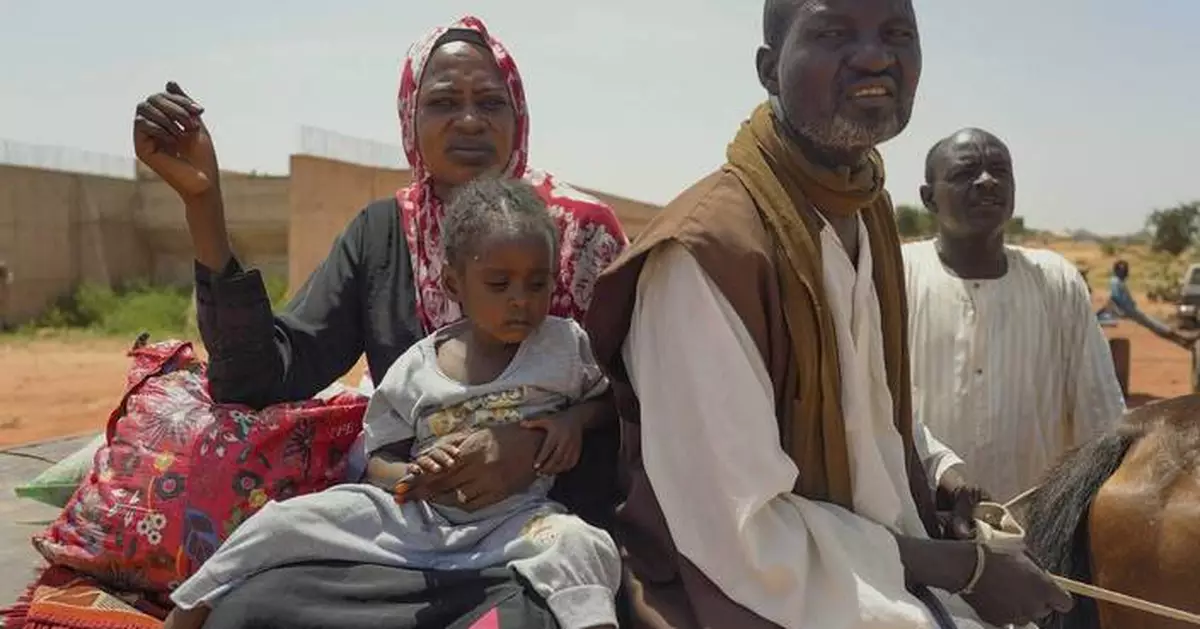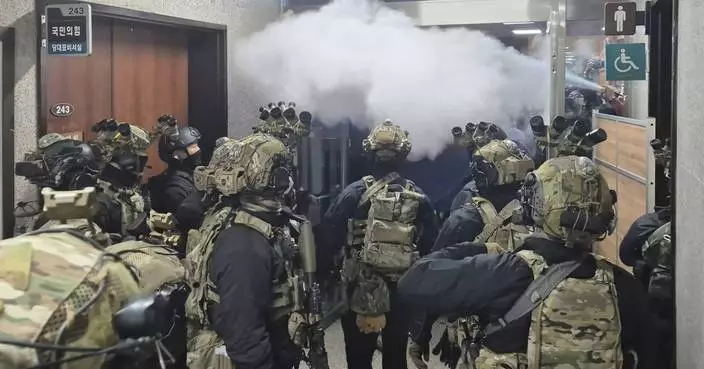ADRE, Chad (AP) — For months, Aziza Abrahim fled from one village in Sudan to the next as people were slaughtered. Yet the killing of relatives and her husband's disappearance aren't what forced the 23-year-old to leave the country for good. It was hunger, she said.
“We don’t have anything to eat because of the war,” Abrahim said, cradling her 1-year-old daughter under the sheet where she now shelters, days after crossing into Chad.
The war in Sudan has created vast hunger, including famine. It has pushed people off their farms. Food in the markets is sparse, prices have spiked and aid groups say they’re struggling to reach the most vulnerable as warring parties limit access.
Some 24,000 people have been killed and millions displaced during the war that erupted in April 2023, sparked by tensions between the military and a powerful paramilitary group, the Rapid Support Forces. Global experts confirmed famine in the Zamzam displacement camp in July. They warn that some 25 million people — more than half of Sudan’s population — are expected to face acute hunger this year.
“People are starving to death at the moment ... It’s man-made. It’s these men with guns and power who deny women and children food,” Jan Egeland, head of the Norwegian Refugee Council, told The Associated Press. Warring parties on both sides are blocking assistance and delaying authorization for aid groups, he said.
Between May and September, there were seven malnutrition-related deaths among children in one hospital at a displacement site in Chad run by Doctors Without Borders, known by its French acronym MSF. Such deaths can be from disease in hunger-weakened bodies.
In September, MSF was forced to stop caring for 5,000 malnourished children in North Darfur for several weeks, citing repeated, deliberate obstructions and blockades. U.S. President Joe Biden has called on both sides to allow unhindered access and stop killing civilians.
But the fighting shows no signs of slowing. More than 2,600 people were killed across the country in October, according to the Armed Conflict Location & Event Data Project, which called it the bloodiest month of the war.
Violence is intensifying around North Darfur's capital, El Fasher, the only capital in the vast western Darfur region that the RSF doesn't hold. Darfur has experienced some of the war's worst atrocities, and the International Criminal Court prosecutor has said there are grounds to believe both sides may be committing war crimes, crimes against humanity or genocide.
Abrahim escaped her village in West Darfur and sought refuge for more than a year in nearby towns with friends and relatives. Her husband had left home to find work before the war, and she hasn’t heard from him since.
She struggled to eat and feed their daughter. Unable to farm, she cut wood and sold it in Chad, traveling eight hours by donkey there and back every few days, earning enough to buy grain. But after a few months the wood ran out, forcing her to leave for good.
Others who have fled to Chad described food prices spiking three-fold and stocks dwindling in the market. There were no vegetables, just grains and nuts.
Awatif Adam came to Chad in October. Her husband wasn't making enough transporting people with his donkey cart, and it was too risky to farm, she said. Her 6-year-old twin girls and 3-year-old son lost weight and were always hungry.
“My children were saying all the time, ‘Mom, give us food’,” she said. Their cries drove her to leave.
As more people stream into Chad, aid groups worry about supporting them.
Some 700,000 Sudanese have entered since the war began. Many live in squalid refugee camps or shelter at the border in makeshift displacement sites. And the number of arrivals at the Adre crossing between August and October jumped from 6,100 to 14,800, according to government and U.N. data., though it was not clear whether some people entered multiple times.
Earlier this year, the World Food Program cut rations by roughly half in Chad, citing a lack of funding.
While there's now enough money to return to full rations until the start of next year, more arrivals will strain the system and more hunger will result if funding doesn't keep pace, said Ramazani Karabaye, head of the World Food Program's operations in Adre.
During an AP visit to Adre in October, some people who fled Sudan at the start of the war said they were still struggling.
Khadiga Omer Adam said she doesn't have enough aid or money to eat regularly, which has complicated breastfeeding her already malnourished daughter, Salma Issa. The 35-year-old gave birth during the war's initial days, delivering alone in West Darfur. It was too dangerous for a midwife to reach her.
Adam had clutched the baby as she fled through villages, begging for food. More than a year later, she sat on a hospital bed holding a bag of fluid above her daughter, who was fed through a tube in her nose.
“I have confidence in the doctors ... I believe she'll improve, I don't think she'll die," she said.
The MSF-run clinic in the Aboutengue camp admitted more than 340 cases of severely malnourished children in August and September. Staff fear that number could rise. The arid climate in Chad south of the Sahara Desert means it's hard to farm, and there's little food variety, health workers said.
People are fleeing Sudan into difficult conditions, said Dr. Oula Dramane Ouattara, head of MSF's medical activities in the camp.
”If things go on like this, I’m afraid the situation will get out of control," he said.
The Associated Press receives financial support for global health and development coverage in Africa from the Gates Foundation. The AP is solely responsible for all content. Find AP’s standards for working with philanthropies, a list of supporters and funded coverage areas at AP.org.
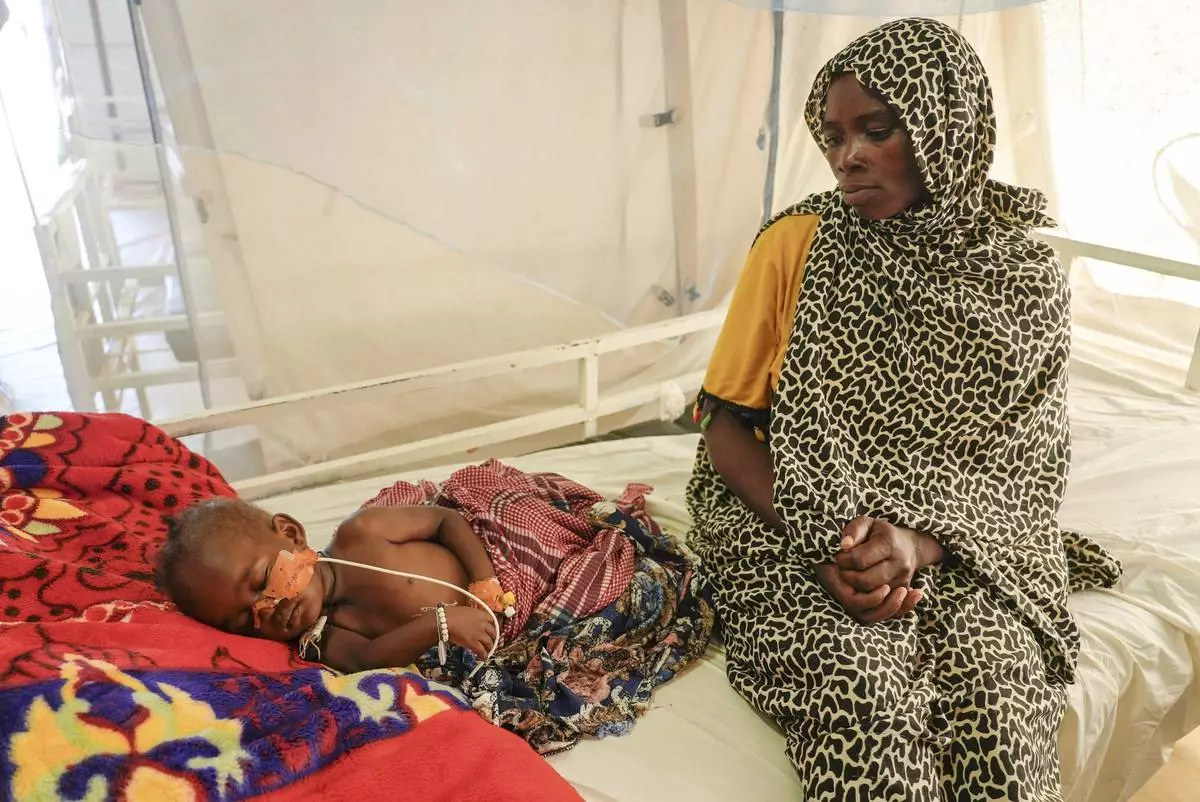
Khadiga Omer adam sits by her sick child in an MSF-run clinic in the Aboutengue displacement site near Acre, Chad, Friday, Oct 4. 2024. (AP Photo/Sam Mednick)
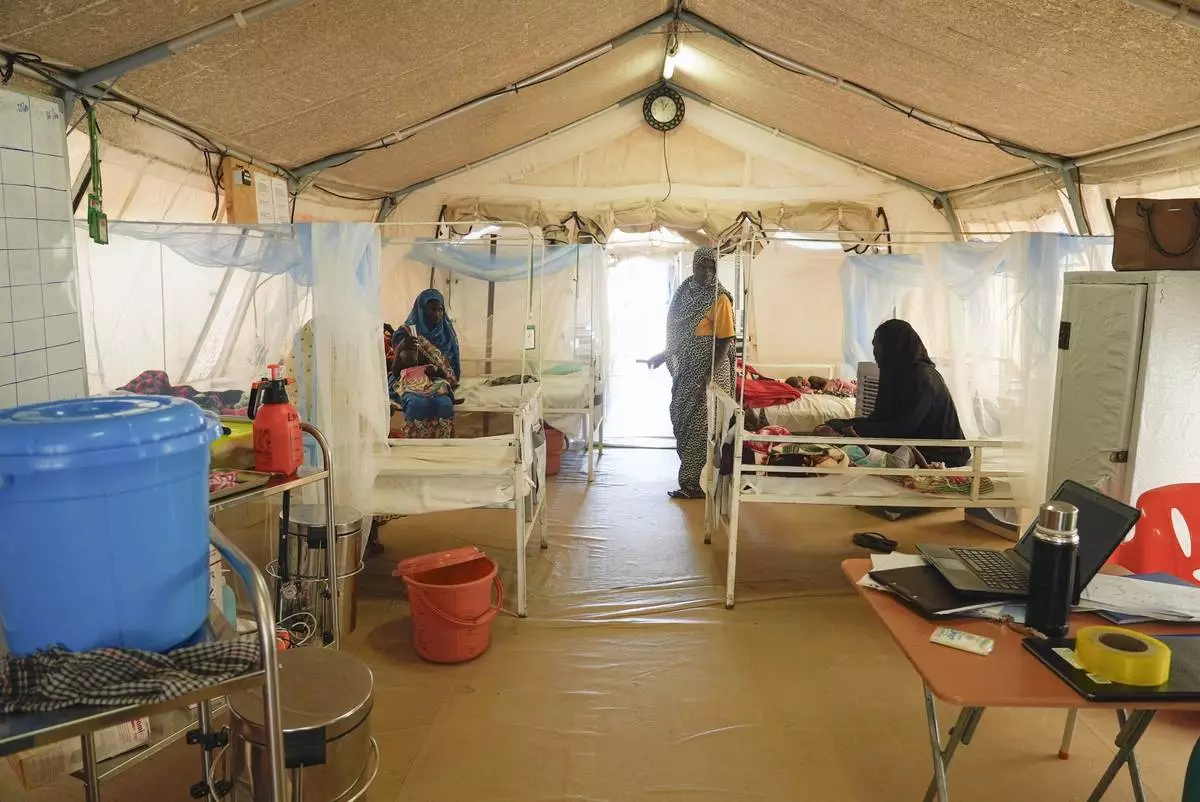
Patients are treated in an MSF-run clinic in the Aboutengue displacement site near Acre, Chad, Friday, Oct 4. 2024. (AP Photo/Sam Mednick)
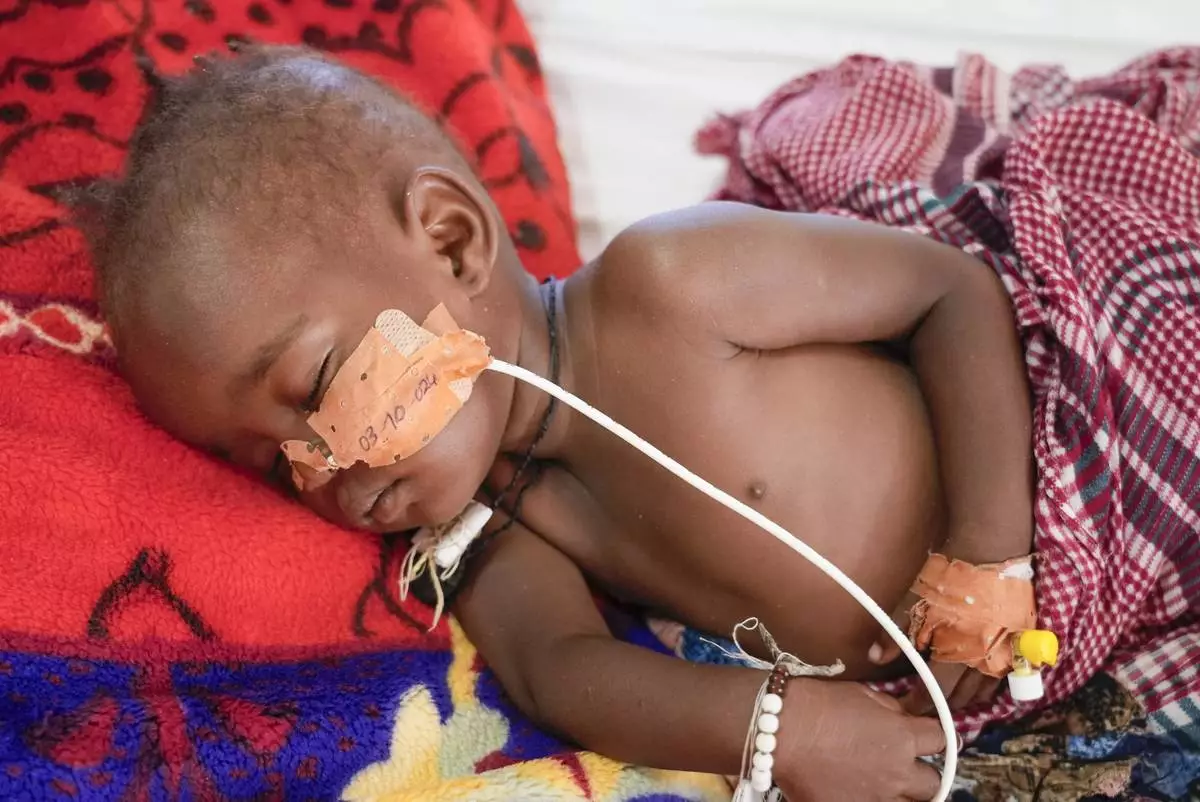
17-month-old Salma IssaAbakar rests in an MSF-run clinic in the Aboutengue displacement site near Acre, Chad, Friday, Oct 4. 2024. (AP Photo/Sam Mednick)
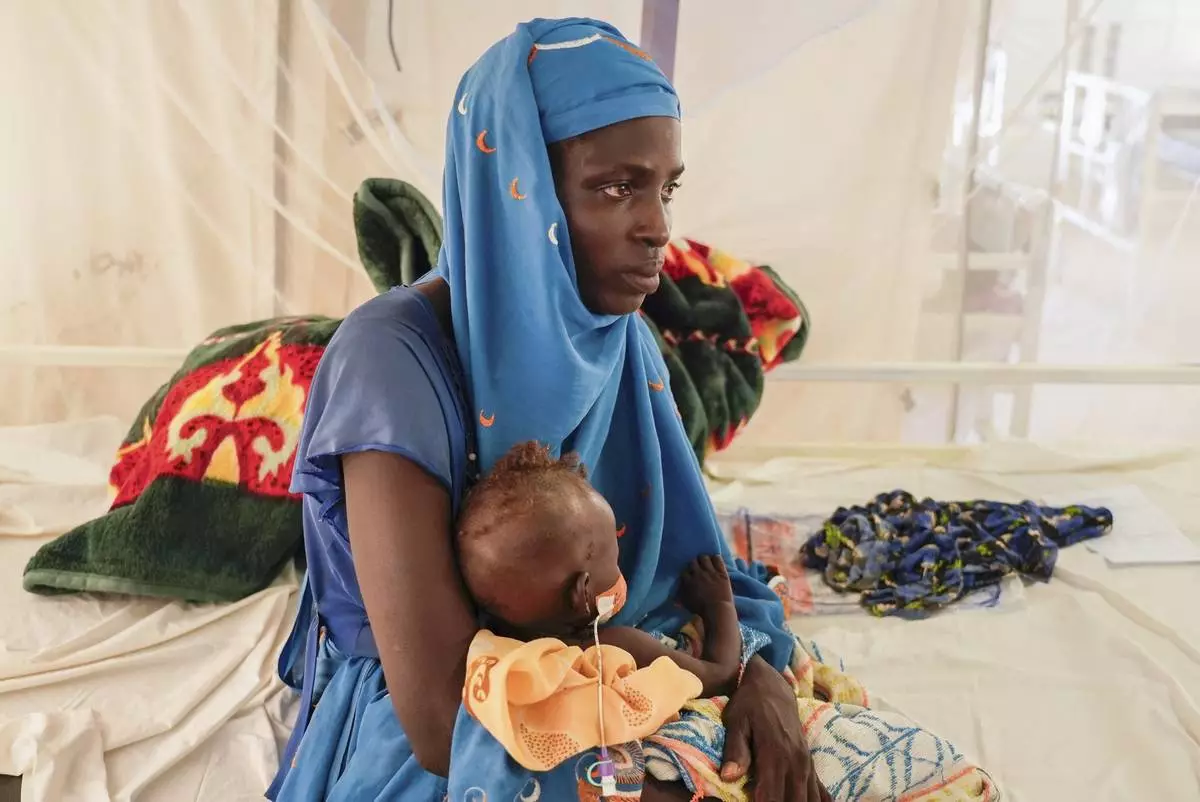
Halima Habdullha holds her 7-month-old severely malnourished daughter Kaltum Abakar in an MSF-run clinic in the Aboutengue displacement site near Acre, Chad, Friday, Oct 4. 2024. (AP Photo/Sam Mednick)
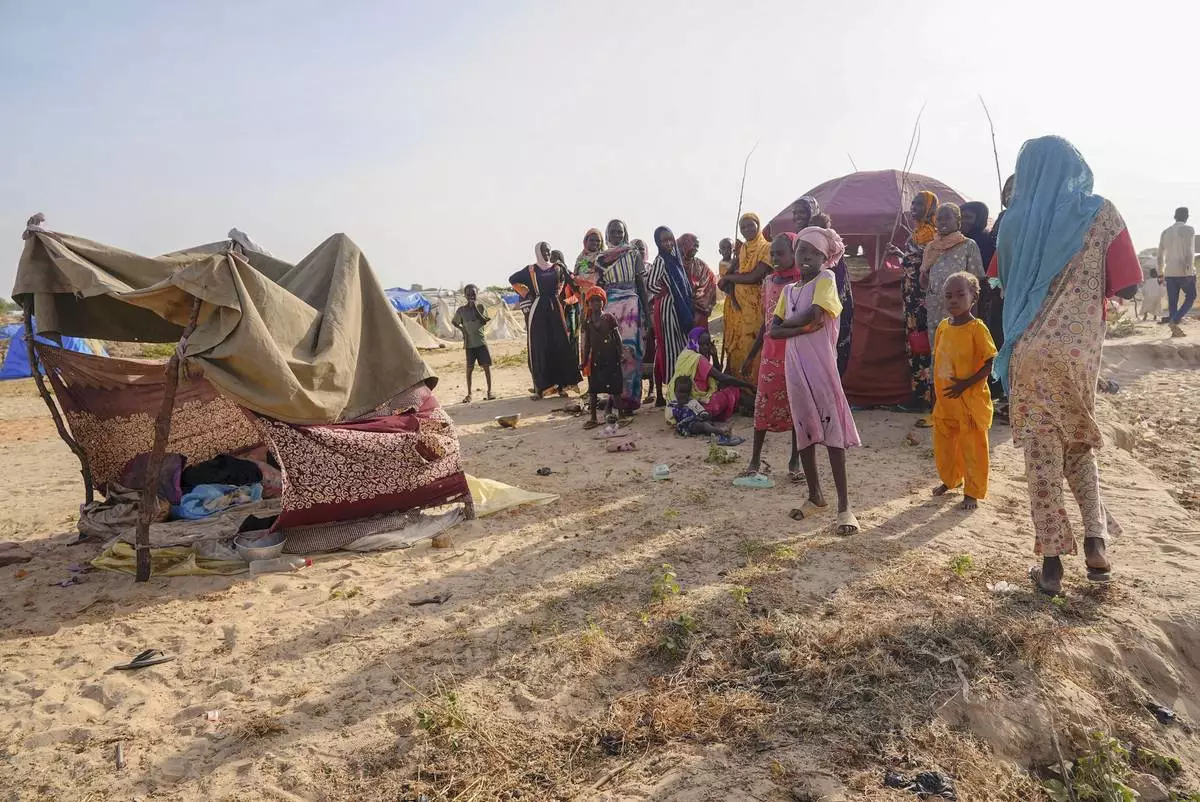
Sudanese refugees arrive in Acre, Chad, Sunday, Oct 6. 2024. (AP Photo/Sam Mednick)
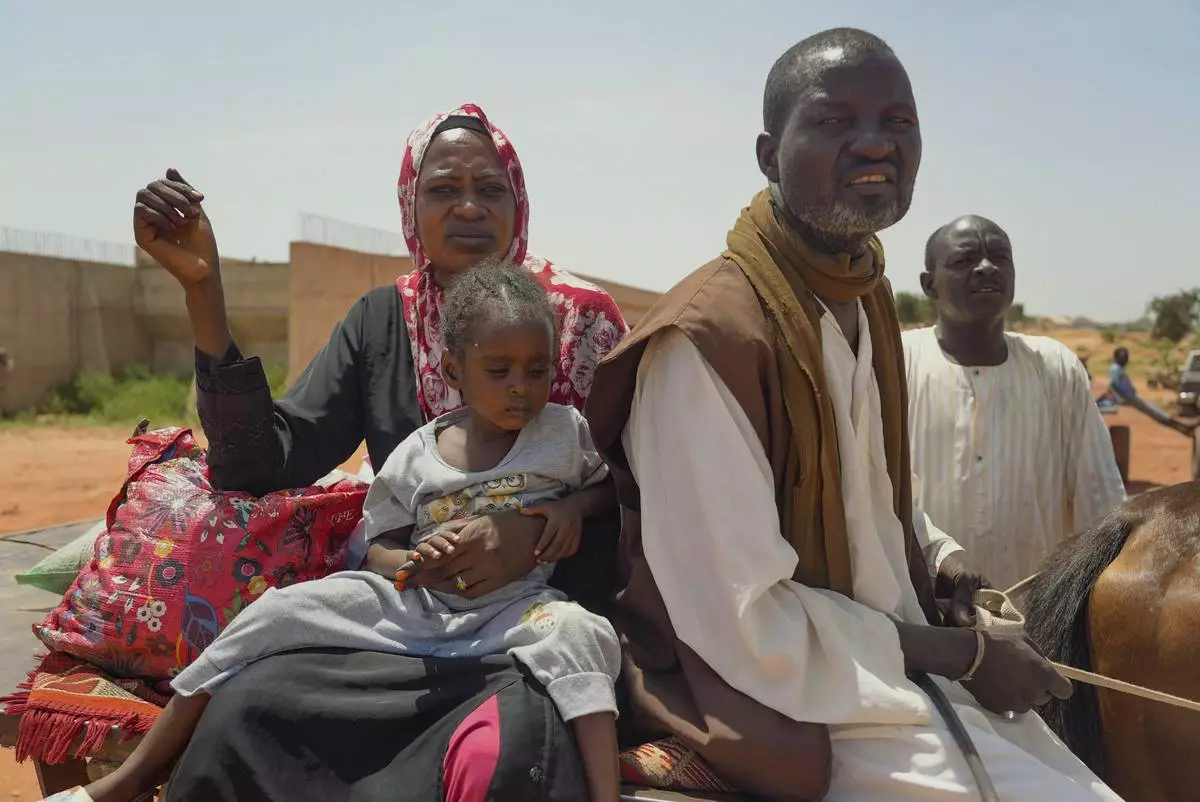
Ousmane Taher and his family cross from Sudan into Chad near Acre Sunday, Oct 6. 2024. (AP Photo/Sam Mednick)


